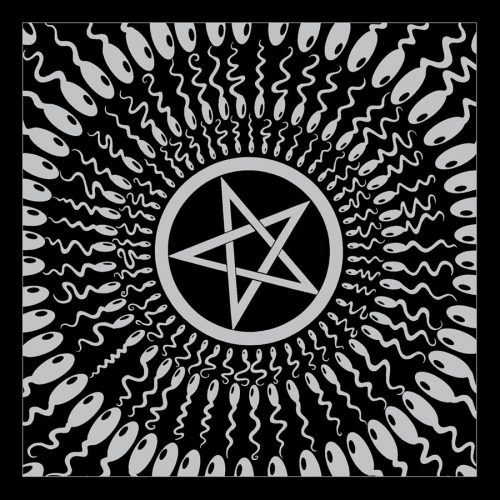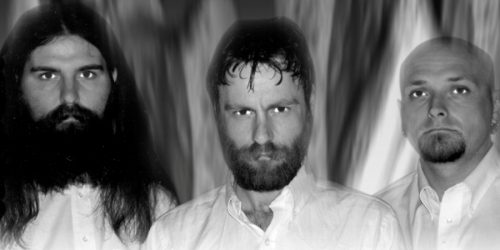 “Right now, I want the undivided attention of every God-fearing American citizen.”
“Right now, I want the undivided attention of every God-fearing American citizen.”
Angry Metal Guy is angry. That was very meta and meme-ish, I know, but when he started the blog back in 2009, he had a lot of opinions about our favorite music of choice, and he was not afraid to share them. You know who else personifies Angry Metal Guy? Today is the Day’s Steve Austin. Back in 1997, after three albums on Amphetamine Reptile, shit hit the fan for Austin in glorious fashion. Label-less, homeless, without a backing band, cut off from family, and left behind by loved ones, Austin holed himself off in his warehouse studio (which doubled as a makeshift living space) in Nashville, and began work on what easily should have been his final will and testament. That result is today’s induction into the Yer Metal is Olde Hall of Fame: the visceral, uncompromising Temple of the Morning Star.
Now, before I continue, I have to ask you a question. How angry is your metal? I don’t mean blastbeats, 808 bass drops, breakdowns after breakdowns, or any of the other frivolous shit that gets peddled like 5th generation hand-me-downs at a sketchy rundown flea market. I’m talking honest, genuinely seething rage at the world around you? The kind of rage that screams, “fuck this, fuck the world, and fuck you” with such a passionate sincerity that there’s no doubt that it’s coming from a place of pure honesty and total disappointment at life? Because Temple, as stated above, not only succeeds in its viciousness, but still legitimately frightens to this very day because of it.
Key examples of such headfuckery make themselves apparent early on. After a mournful intro (which doubles as the almost-defiant outro, both of which I will address), Waylon Jennings’ “Good-Hearted Woman” begins with loops of Austin screaming, feedback, and a voice telling you that you are free to do what we tell you before late Southern Baptist pastor Jerry Falwell comes in with the quote that opens the review in question. And with that, “The Man Who Loves to Hurt Himself” rips right for your throat and refuses to let go. Austin’s riffing and maniacal screaming lacerate all around him, while drummer Mike Hyde seemingly hits every piece of his kit at once with surgical precision and militaristic authority. Christopher Reese’s bass work does a commendable job barely holding everything together as chaos swirls around the band, threatening to snuff out everything in its path, including itself.

This unhinged chaos works beautifully due to Austin’s sincerity in his attack. “Pinnacle,” a song written specifically for a former friend who betrayed him, pulls no punches lyrically as Austin howls and screeches over frantic drumming and thick bass. Austin croons and calls out his ex on “My Life With You,” detailing his disappointment of her and his handling of that relationship’s demise. “Hermaphrodite”‘s dirge and crawl winds the album down on a diseased, uncomfortable note, before going into the album’s intro and outro. As an acoustic opener, the title track begins with a Middle-Eastern melody and bongos, with Austin sighing “I can’t be what you want me to be… I am dead,” sounding defeated and on the verge of killing himself. When that song repeats as an electric outro, that very song morphs almost into a song of empowerment, with bongos replaced by Hyde’s phenomenal fills and tribal rhythms, and Austin screaming as if the old him as died, and he’s reborn. “Temple of the Morning Star” both set up the album for a story of a troubled man, and ends that same album as a man purged.1
Twenty years later, Austin has continued to release influential noise albums under the Today is the Day moniker, having influenced a whole slew of bands from Converge through The Dillinger Escape Plan. The players may change (including, at one point, Bill Kelliher and Brann Dailor of Mastodon), but the passion hasn’t. Also, just recently, Austin was featured in a documentary titled The Man Who Loves To Hurt Himself, following Austin on the road as he discusses his passion for music as both enjoyment and catharsis. After twenty years, Temple of the Morning Star is finally getting the praise it rightfully deserves, and here’s hoping more ears will hear it, as this album remains the pinnacle of anger.

















